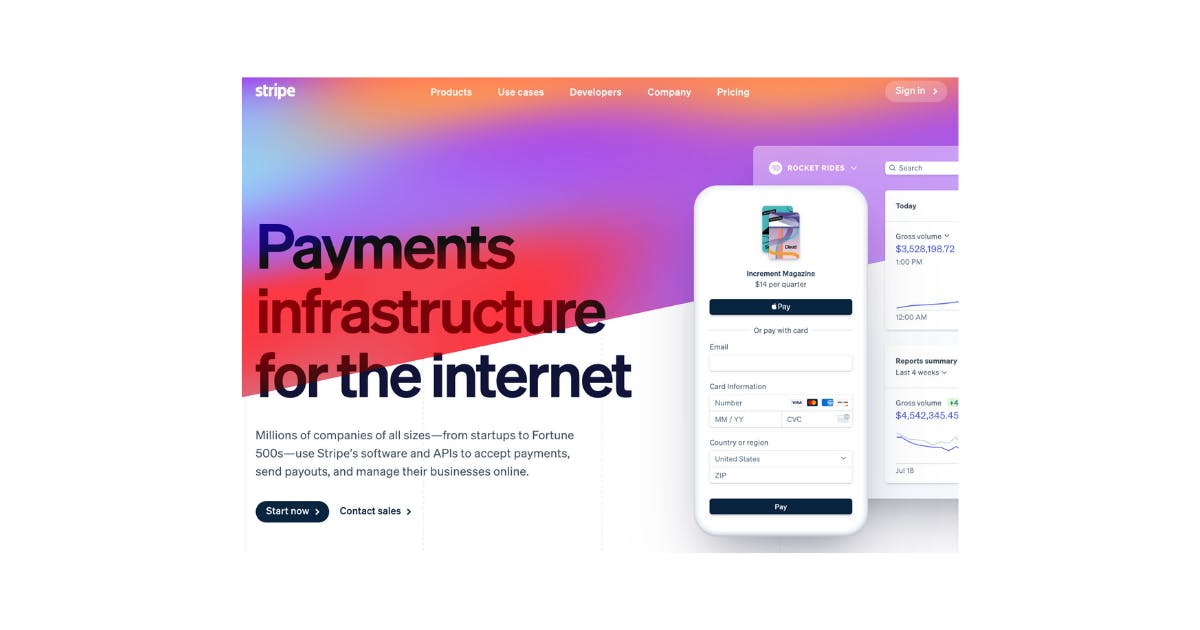Can you remember the last time you visited a brick-and-mortar bank? Neither can we. Chances are that the majority of your banking, stock trading, peer-to-peer payments, and cryptocurrency activity is now completed through an app or website.
Financial technology, commonly known as fintech, is a booming industry that has already transformed how people around the world manage their money, from personal financing to enterprise-grade accounting. According to BalancingEverything, the fintech industry is expected to reach $310 billion by 2022. Driving the industry is a widespread global adoption of such technologies. While North America has the most fintech startups (recent statistics suggest upwards of 9,000), the APAC region boasts some of the highest user adoption rates thanks to several large fintech global leaders, including India’s ecommerce payment system Paytm and Indonesia’s GoJek.
Today’s fintech users have high expectations when it comes to their apps, including payment processing, unparalleled security, fraud prevention, real-time stock updates, instant customer service or fintech chatbots with advanced chat features, and social media features such as commenting, activity feeds, and notification feeds.
Rather than build this advanced functionality from the ground up, developers should consider integrating these top fintech APIs — which include several different types of APIs — into their products.
Payment Processing APIs
Whether it be paying your friend back for dinner or purchasing an item online from your favorite ecommerce site, many users interact with payment processing platforms daily to chat with knowledgeable salespeople or sellers about a specific product, or to verify that their purchase is on its way to their house. But payment processing is complex. These APIs simplify adding payment functionality to your app.
1. Stripe API

The Stripe API enables apps, websites, and in-person retailers to accept and send payments. Stripe’s robust feature set includes recurring payments, fraud prevention with machine learning tools such as Stripe Radar, payouts, financial reporting, flexible invoicing, prebuilt UI components, third-party integrations, and much more. Stripe also supports over 135 currencies for global use. Languages include Node.js, Ruby, Python, Go, PHP, Java, and .Net.
2. PayPal Payments API

The popular payment processor PayPal has an extensive suite of APIs for most aspects of fintech apps, including Disputes, Invoices, Billing Plans, Subscriptions, Catalog Products, and more. PayPal’s Payments REST API authorizes payments, captures authorized payments, refunds payments, and displays payment information. PayPal’s APIs use “ HTTP methods, a RESTful endpoint structure, the OAuth 2.0 protocol, and JSON-formatted payloads.”
3. Braintree API

Braintree is a scalable PayPal-owned end-to-end payment solution with global reach and support for Android, iOS, and web. The Braintree GraphQL API allows businesses to accept and process cards, wallets, and local payment methods, and safely stores customer payment information for a seamless checkout experience. Braintree is a Level 1 PCI DSS compliant service provider, which keeps cardholder data secure.
Banking Integration & ID Verification APIs
Integrating banking and account information into an app is key to fostering a superior fintech app user experience. These integration and identity verification APIs ensure that linking accounts is both simple and secure.
4. Syncfy Connect API

The Syncfy Connect API allows fintech apps to securely integrate information from financial institutions for a seamless banking, lending, or transaction experience. The REST API enables customers to view their whole financial picture, including credit cards, crypto exchanges, and more for data-driven lending. Syncfy also offers APIs specifically for invoicing, integrating with fiscal authorities, and accepting payments.
5. ID.Me API

ID.Me’s APIs and SDKs are designed to help apps verify the identity of new users online. ID.Me uses NIST 800-63-3 identity guidelines to authenticate users. The APIs can also verify documents using machine learning algorithms, and adhere to SCRA monitoring to service military accounts.
6. Plaid API

Plaid’s suite of API solutions can help apps integrate financial information for faster banking such as account opening and closing, instantaneous balance checks, and fraud prevention. The Plaid Investments API can connect to multiple accounts ranging from brokerage to retirement to investment accounts for a holistic take on financial planning.
Cryptocurrency APIs
The cryptocurrency industry is expected to grow from $1.6 billion in 2021 to $2.2 billion by 2026, and apps that power crypto exchanges, market data, balance information, and accounts are poised to continue to disrupt this booming sector of the financial sector. The following APIs help drive cryptocurrency app innovation.
7. Blockchain Exchange APIs

Blockchain’s Exchange API can receive real-time market data, request balance information, and perform trades using the FIX standard for naming conventions. Blockchain also provides APIs that can accept bitcoin payments on any website, and send and receive funds from Blockchain’s wallet, which the company says is the world’s most popular way to buy, sell, and earn crypto.
8. Coinbase Digital API

The cryptocurrency platform Coinbase — a popular place to buy, sell, manage and store cryptocurrencies — has APIs that allow fintech apps to connect to over 40 million Coinbase users and integrate cryptocurrencies. The Coinbase Digital API can generate bitcoin, litecoin, and ethereum, securely store bitcoin cash, retrieve real-time and historical price information, and receive payment notifications.
9. Bitquery APIs

Bitquery’s GraphQL API accesses data from over 20 blockchains. The company’s Coinpath APIs track money from any source, transaction amount, or destination, and can help detect money laundering fraud, or other stolen funds.
Stock Trading APIs
Individual day traders and enterprise investment firms alike rely on real-time, historical, and predictive analytics to make informed deals. These stock trading APIs provide vital investor data.
10. Polygon Stock API

Polygon’s REST APIs deliver high-quality financial data from stocks and equities, crypto, and more. The company’s Stock API, for example, features 100% market coverage, including trades, quotes, last trade/quote for a symbol, snapshots for all tickers, and much more. Developers can pull market data from 19 exchanges, and there are no maximum queries per minute or daily call limits on premium API plans.
11. Benzinga Stock News API

Benzinga says that nearly all stock price changes over 10% result from a single news headline. The company’s Stock News API aggregates potentially impactful news headlines (both curated and original content) that matter to individual investors and larger firms.The API includes the 600-900 real-time headlines Benzinga publishes per day.
12. Alpha Vantage API

Alpha Vantage has a suite of powerful APIs in five categories that can help investors of all ilk make data-driven trading decisions. API categories include time series, fundamental data (such as company overviews and IPO calendars), physical and digital/crypto currencies such as bitcoin, economic indicators, and technical indicators. What’s cool: Alpha Vantage is on a mission to democratize data, so all of the APIs are available for free.
Fintech Startups for Competitive Functionality
As online banking, stock trading, lending, peer-to-peer payments, and micro-investing continues to grow, the market for fintech apps and platforms will only accelerate. The most popular fintech apps — think: Venmo, PayPal, Robinhood, and more — are ones with a nuanced and valuable set of features that rely on API integrations.
The above APIs are solid options for developers to consider when seeking to quickly access vital datasets, security framework, and even in-app communication such as chat and activity feeds.
Interested in integrating an activity feed or chat API into your fintech app or platform? Contact our sales team today.
